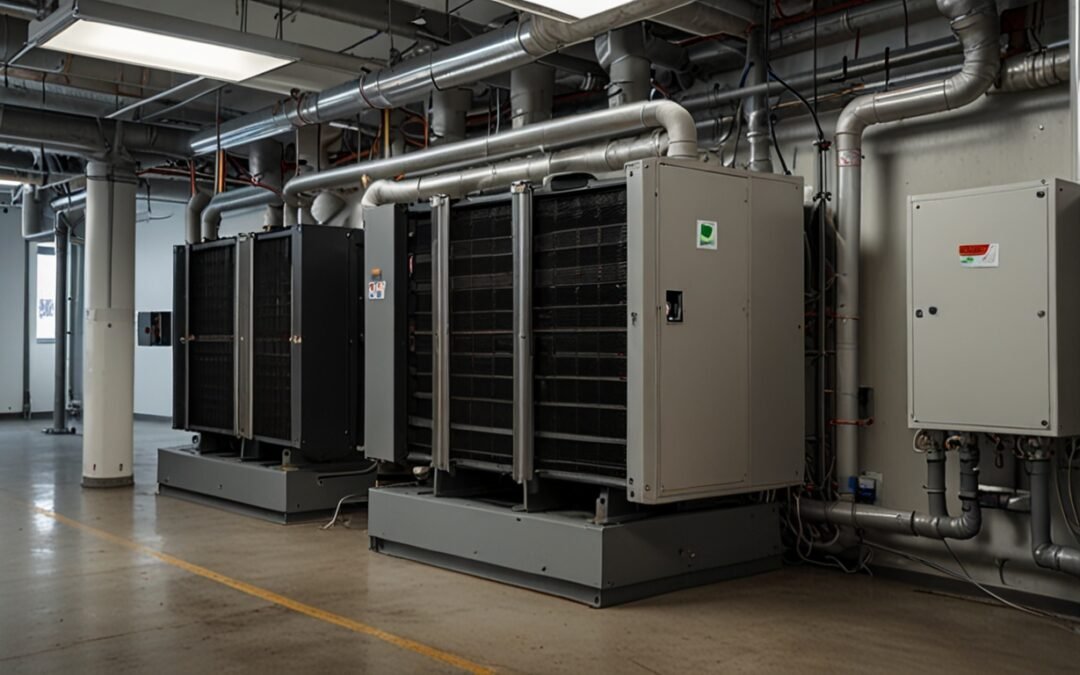When it comes to maintaining comfort and air quality in residential and commercial buildings, the HVAC (Heating, Ventilation, and Air Conditioning) system plays a crucial role. However, the design and engineering of an HVAC system are just as important as its installation and maintenance. Here’s why engineering your HVAC system is essential for efficiency, comfort, and sustainability.
1. Optimized Energy Efficiency
Energy efficiency is one of the primary benefits of a well-engineered HVAC system. Engineers can design systems that:
- Reduce Energy Consumption: By selecting the right size and type of equipment, engineers ensure that the system operates efficiently without wasting energy.
- Integrate Advanced Technologies: Incorporating modern technologies like variable speed drives and smart thermostats can further enhance energy efficiency.
- Utilize Renewable Energy Sources: Engineers can design systems that leverage solar or geothermal energy, reducing reliance on fossil fuels.
2. Improved Comfort and Air Quality
Comfort and air quality are paramount in any living or working space. Proper HVAC engineering ensures:
- Consistent Temperature Control: Engineers design systems that maintain a consistent temperature throughout the building, avoiding hot and cold spots.
- Effective Humidity Management: Proper humidity control prevents the growth of mold and mildew, improving indoor air quality.
- Advanced Filtration Systems: Engineers can incorporate high-efficiency particulate air (HEPA) filters and other advanced filtration systems to remove pollutants and allergens from the air.
3. Enhanced System Reliability and Longevity
A well-engineered HVAC system is not only efficient but also reliable and durable:
- Reduced Wear and Tear: Properly sized and designed systems experience less stress and strain, reducing the likelihood of breakdowns.
- Extended Lifespan: Quality engineering extends the life of HVAC components, resulting in fewer replacements and repairs over time.
- Preventive Maintenance: Engineers can design systems with easy access points for maintenance, ensuring that regular upkeep is straightforward and effective.
4. Cost Savings
While the initial investment in engineering services may seem high, the long-term cost savings are significant:
- Lower Energy Bills: Energy-efficient systems reduce monthly utility costs.
- Reduced Repair Costs: Reliable systems with fewer breakdowns mean lower repair expenses.
- Increased Property Value: High-quality, well-engineered HVAC systems can increase the value of a property, making it more attractive to potential buyers or tenants.
5. Compliance with Regulations and Standards
Adhering to local building codes and industry standards is critical:
- Legal Compliance: Engineers ensure that the HVAC system meets all local regulations, avoiding potential fines or legal issues.
- Safety Standards: Proper engineering ensures that the system is safe to operate, reducing the risk of accidents or malfunctions.
- Environmental Standards: Engineers can design systems that meet or exceed environmental standards, contributing to sustainability goals.
6. Customization and Scalability
Every building is unique, and a one-size-fits-all approach rarely works:
- Tailored Solutions: Engineers can design HVAC systems that are customized to meet the specific needs of the building and its occupants.
- Future-Proofing: Well-engineered systems can be easily scaled or modified to accommodate future changes or expansions.
7. Sustainable and Green Building Practices
Sustainability is a growing concern in today’s world:
- Reduced Carbon Footprint: Energy-efficient and renewable energy systems contribute to lower carbon emissions.
- Certification and Incentives: Buildings with well-engineered HVAC systems may qualify for green building certifications and financial incentives from governments or organizations.
Conclusion
Engineering your HVAC system is an investment in comfort, efficiency, reliability, and sustainability. By enlisting the expertise of qualified engineers, you ensure that your HVAC system is designed to meet the specific needs of your building while providing long-term benefits in terms of cost savings, comfort, and environmental impact. Whether you’re constructing a new building or upgrading an existing system, the importance of professional HVAC engineering cannot be overstated. Make the smart choice for your building’s future by prioritizing quality engineering in your HVAC system.

